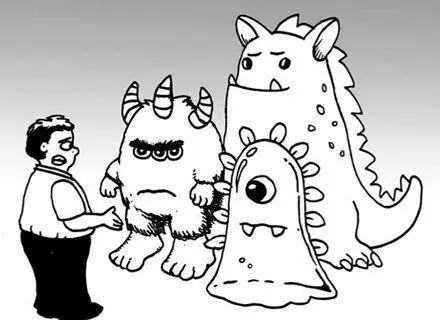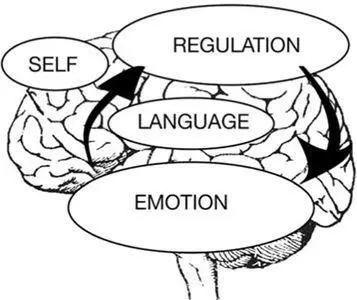Tan, Chade-Meng - Search Inside Yourself - The Unexpected Path to Achieving Success, Happiness (and World Peace)
Здесь есть возможность читать онлайн «Tan, Chade-Meng - Search Inside Yourself - The Unexpected Path to Achieving Success, Happiness (and World Peace)» — ознакомительный отрывок электронной книги совершенно бесплатно, а после прочтения отрывка купить полную версию. В некоторых случаях можно слушать аудио, скачать через торрент в формате fb2 и присутствует краткое содержание. Год выпуска: 2012, Издательство: Harper Collins, Inc., Жанр: Старинная литература, на английском языке. Описание произведения, (предисловие) а так же отзывы посетителей доступны на портале библиотеки ЛибКат.
- Название:Search Inside Yourself: The Unexpected Path to Achieving Success, Happiness (and World Peace)
- Автор:
- Издательство:Harper Collins, Inc.
- Жанр:
- Год:2012
- ISBN:нет данных
- Рейтинг книги:4 / 5. Голосов: 1
-
Избранное:Добавить в избранное
- Отзывы:
-
Ваша оценка:
- 80
- 1
- 2
- 3
- 4
- 5
Search Inside Yourself: The Unexpected Path to Achieving Success, Happiness (and World Peace): краткое содержание, описание и аннотация
Предлагаем к чтению аннотацию, описание, краткое содержание или предисловие (зависит от того, что написал сам автор книги «Search Inside Yourself: The Unexpected Path to Achieving Success, Happiness (and World Peace)»). Если вы не нашли необходимую информацию о книге — напишите в комментариях, мы постараемся отыскать её.
Search Inside Yourself: The Unexpected Path to Achieving Success, Happiness (and World Peace) — читать онлайн ознакомительный отрывок
Ниже представлен текст книги, разбитый по страницам. Система сохранения места последней прочитанной страницы, позволяет с удобством читать онлайн бесплатно книгу «Search Inside Yourself: The Unexpected Path to Achieving Success, Happiness (and World Peace)», без необходимости каждый раз заново искать на чём Вы остановились. Поставьте закладку, и сможете в любой момент перейти на страницу, на которой закончили чтение.
Интервал:
Закладка:
One of the most interesting historical figures to have acquired this insight was Roman Emperor Marcus Aurelius, the last of the Five Good Emperors. He wrote:
If you are distressed by anything external, the pain is not due to the thing itself, but to your estimate of it; and this you have the power to revoke at any moment .
Funny enough (in our context), this quote originates from the collection of his writings entitled Meditations .
The second important opportunity is the possibility of experiencing pleasure without the aftertaste of unsatisfactoriness. The biggest problem with pleasant experiences is that they all eventually cease. The experience itself causes no suffering, but our clinging on to them and our desperate hoping that they do not go away cause suffering. Thich Nhat Hanh has a very nice way of putting it: wilting flowers do not cause suffering; it is the unrealistic desire that flowers not wilt that causes suffering. Hence, if the mind recognizes this and then becomes able to let go of grasping, the pleasant experiences lead to little or no suffering. We can fully enjoy flowers even though they eventually wilt.
By letting go of grasping and aversion, we can fully adopt the letting-go mind and also fully experience life in its glorious Technicolor detail. In fact, we may be able to experience life more vividly with the letting-go mind because it frees us from the noisy interferences of grasping, aversion, and suffering.
Good karma. Good cake. Yum.

“Okay, you don’t have to let everything go.”
General Principles for Dealing with Distress
Four very helpful general principles for dealing with any distressing emotions are:
1. Know when you are not in pain.
2. Do not feel bad about feeling bad.
3. Do not feed the monsters.
4. Start every thought with kindness and humor.
Know When You Are Not in Pain
When you are not in pain, be aware that you are not in pain. This is a very powerful practice on multiple levels. On one level, it increases happiness. When we are suffering from pain, we always tell ourselves, “I’ll be so happy if I am free from this pain,” but when we are free from that pain, we forget to enjoy freedom from pain. This practice of constantly noticing the lack of distress encourages us to enjoy the sweetness of that freedom, thereby helping us to be happier.
On another level, I find that even when we are experiencing pain, the pain is not constant, especially emotional pain. The pain waxes and wanes, and there are times (perhaps short intervals of minutes or seconds) when a space opens up and we are free from pain. The practice of noticing the lack of distress helps us abide in that small space when it opens up. This space gives us temporary relief and is the basis from which we launch our recovery and find the strength to face our problems.
Do Not Feel Bad About Feeling Bad
We have the tendency to feel bad about feeling bad. I call it “meta-distress,” distress about experiencing distress. This is especially true for sensitive and good-hearted people. We berate ourselves by saying things like, “Hey, if I am such a good person, why am I feeling this much envy?” This is even truer for good people with contemplative practices like meditation. We scold ourselves by saying, “Maybe if I was actually a good meditator, I wouldn’t feel this way. Therefore, I must be a hypocrite and a useless piece of [insert context-appropriate noun].”
It is important to recognize that distress is a naturally arising phenomenon—we all experience it from time to time. Even Thich Nhat Hanh, the very symbol of enlightened peace in the world, once got so angry at someone he almost wanted to stand up and slug him.
Also recognize that feeling bad about feeling bad is an act of ego. It’s a reflection of our ego’s image about itself, and the net result is the creation of new distress for no good reason at all. The antidote is to let the ego go, with good humor whenever possible.
And remember, meta-distress is really bad economics.
Do Not Feed the Monsters
Let’s pretend that monsters cause our distress, occupying the mind and wreaking havoc on our emotions. What can we do to stop them? They seem so overwhelmingly powerful, we cannot stop them from arising in the mind, and we seem powerless to make them leave.
Happily, it turns out that our monsters need us to feed them in order to survive. If we do not feed them, they will get hungry, and maybe they will go away. Therein lies the source of our power—we cannot stop monsters from arising or force them to leave, but we have the power to stop feeding them.
Take anger, for example. If you are really angry at somebody and then examine that anger with mindfulness, you may find that the anger is not constant from moment to moment; it is constantly waxing or waning subtly. You may also find your mind constantly feeding the anger by retelling one or more stories to yourself over and over. If you then stop telling the stories, you may find the anger dissipating for the lack of fuel. Anger Monster needs to feed on your angry stories. With no stories to eat, Anger Monster gets hungry and sometimes goes away. By not feeding Anger Monster, you save mental energy and Anger Monster may leave you alone to play elsewhere. Anger Monster knows people are giving away plenty of anger food elsewhere.
Not feeding monsters is very good economics.

“Okay, how about for starters, I just stop feeding you carbs?”
Start Every Thought with Kindness and Humor
In every situation, distressing or otherwise, it is useful to begin each thought with kindness and compassion for oneself and others.
In my experience, the most important quality of kindness is its healing effect. Imagine taking a rough, spiky brush and repeatedly brushing it hard and fast on an area of your skin. Eventually, your skin will become inflamed and painful to the touch. Kindness is the quality of gently ceasing that harmful brushing action. If you do that, eventually, the skin will heal.
I also find it very useful to see the humor in my own failings. Every time I lose my temper or have a greedy or spiteful thought that does not go away for a while, it is like I have fallen off the wagon again. Of course, I can interpret falling off the wagon as a humiliating and embarrassing experience. However, it is much more fun to think of the experience as a scene in an old black-and-white comedy. Guy falls off wagon in the context of fast, playful music, makes a funny face, dusts himself off, and then climbs back up on the wagon in a quick, awkward, and jerky motion. It is all very funny. So every time I fail, it is a comedy.
And since I fail so often, my life is a great comedy.
Neural Model of Emotion Regulation
In the brain, emotional reactivity and regulation look a lot like this:

(courtesy of Philippe Goldin)
Stanford research scientist Philippe Goldin explains this process well:
In the context of a threat, real or imagined, our emotional state can rapidly shift into fear or anxiety. This shift in emotional reactivity occurs in emotional related brain regions in the limbic system (or the “emotional brain,” represented by the “emotion” bubble). A bottom-up signal is sent to other brain regions to recruit from other brain systems to help regulate (the “regulation” bubble) via top-down signals specific aspects of emotional reactivity. When this system is working, the regulatory systems initiate changes in attention, thinking, and behavior. Using cognitive perspective taking, we can examine what is the source of the threat and determine what strategies will be most effective in modulating the intensity, duration and interpretation of that ongoing emotion experience. I would also add that especially in human beings, this is likely mediated through our view of self, be it positive or negative or otherwise, and our ability to use language and thinking to modulate and understand our experiences . 4
Читать дальшеИнтервал:
Закладка:
Похожие книги на «Search Inside Yourself: The Unexpected Path to Achieving Success, Happiness (and World Peace)»
Представляем Вашему вниманию похожие книги на «Search Inside Yourself: The Unexpected Path to Achieving Success, Happiness (and World Peace)» списком для выбора. Мы отобрали схожую по названию и смыслу литературу в надежде предоставить читателям больше вариантов отыскать новые, интересные, ещё непрочитанные произведения.
Обсуждение, отзывы о книге «Search Inside Yourself: The Unexpected Path to Achieving Success, Happiness (and World Peace)» и просто собственные мнения читателей. Оставьте ваши комментарии, напишите, что Вы думаете о произведении, его смысле или главных героях. Укажите что конкретно понравилось, а что нет, и почему Вы так считаете.







![Chade-Meng Tan - Search Inside Yourself - Increase Productivity, Creativity and Happiness [ePub edition]](/books/703803/chade-thumb.webp)



